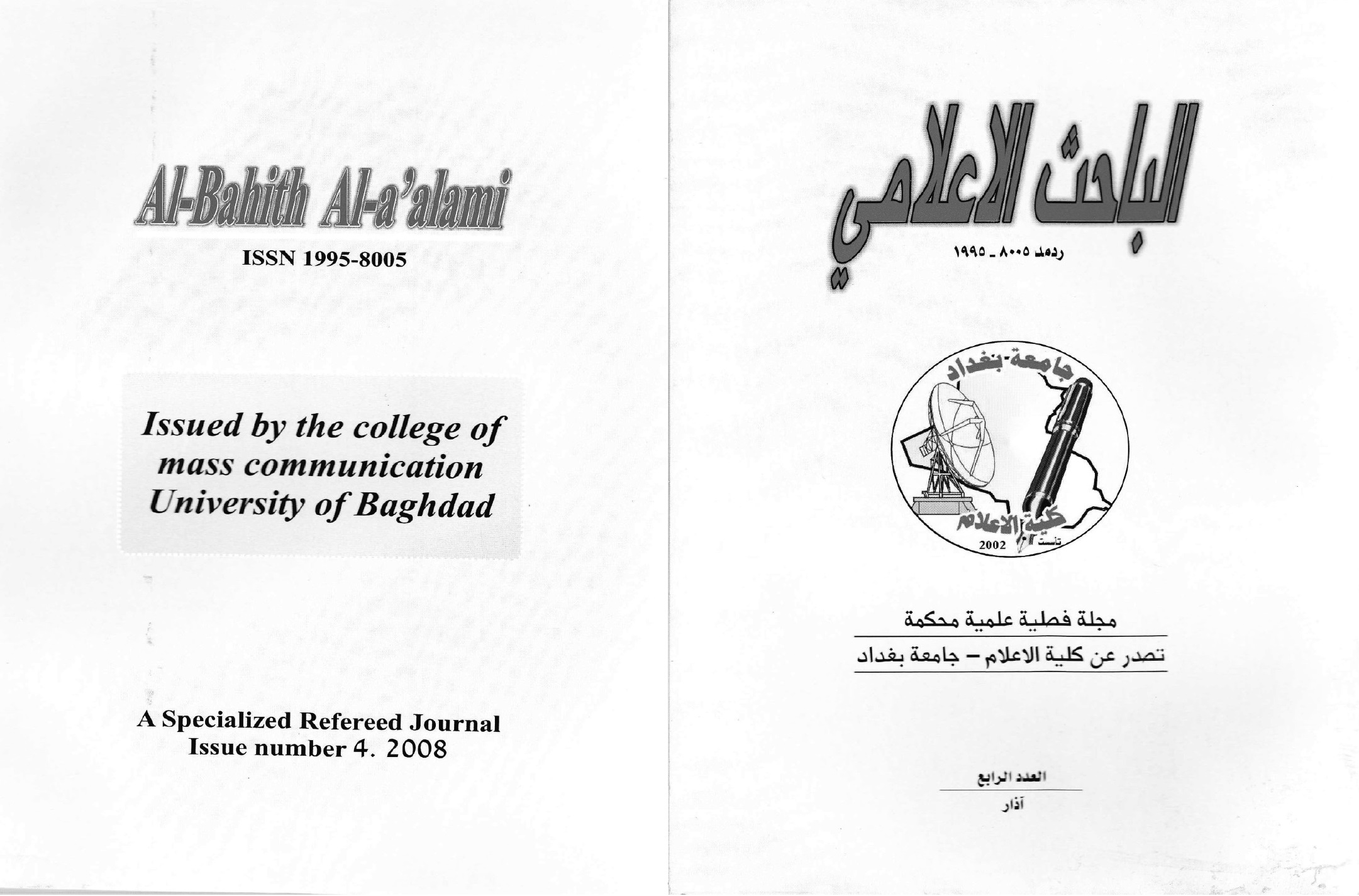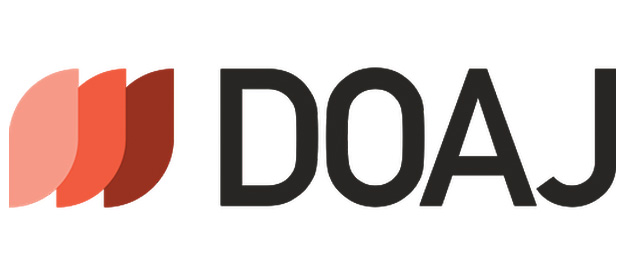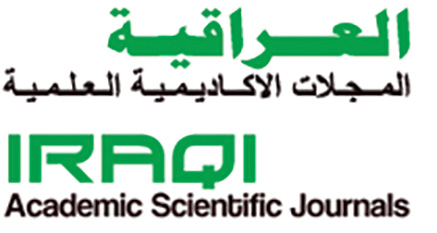ادارة الحملات الاعلامية
DOI:
https://doi.org/10.33282/abaa.v1i4.475الكلمات المفتاحية:
الإعلام ، الإدارة ، صنع القرار ، المسؤولية.الملخص
ان اكثر الظواهر حضوراً في الادارة الاعلامية، هو انتقال السلطة، من اصحاب القرار في الادارة، وخاصة اولئك الذين يحتلون المراكز الادارية بحكم القانون، الى اولئك الذين يتمتعون بنفوذ طبيعي قائم على المعرفة، وعلى قدر من المهارة والكفاءة، وعلى الاخص في الجانب النفسي، والسياسي، والاجتماعي.
ان التقسيم القديم للادارة الى رؤوس وايدي لم يعد مقبولاً والفصل بين التفكير والعمل على النسق التقليدي اصبح مرفوضاً. كما ان فصلا كهذا ربما يناسب نمطا ثابتا، ولكنه لايواكب التقدم في المفاهيم والممارسة الميدانية للادارات. ان منطق الادارة الحديثة يؤكد علىضرورة اعادة توزيع مسؤولية القرار . واتقان اساليب جديدة، والاستجابة لشروط واشكال الهياكل التنظيمية، الى جانب استنباط افكار جديدة عبر ممارسة الادارة عمليا.
التنزيلات
المراجع
2- Shanto Lyengar and Adam F.Simon New perspectives and Evidence on political Communication and Campaign Effects, Annual Review Psychology, 2000, VOL.51,pp.145-169.
3- E. A. Fieldhouse, Notes and Comments, British Journal of politcal Science, VOL. 26, Part 3, 1996, pp.403-439.
4- Steven E. Finkel, campaign effects on voter choice in the German election of 1990, British Journal of political Science, VOL.25, Part 3, 1995, 349-377.
5- Rando Lph T. Stenvenson and Lynn Vavreck, Does campaign Length Matter ? Testing for cross-National effects, British Journal of Political Science Vol. 30, Part 2, 2000.
6- Daron R. Shaw and Brian E. Roberts, Campaign events, the media and the prospects of Victory, B.J. of Political Science, Vol. 30, Part 2, 2000.
7- Harold Mendelsohn, Some reasons why information campaigns can succeed, Public opinion, No. 1, 1973.
8-Dorothy L. Barlett and Others, Selective Exposure to A presidential Campaign, Public Opinion, No. 2, 1974.
9- Wilber Schramm, Mass Media and National development, Unesco, Paris.
10- James S. Ettema and Others, Knowledge Gap Effects In a Health Information Campaign, Public Opinion, No. 4, 1983.
11- Lester C. Thurow, Globalization: The Product of a Knowledge-Based Economy, Annals, AAPSS, 570, July 2000.
12- Christan Heath and Other, Technology and Social interaction : The emergence of workplace studies, British Journal of Sociology, Vol. No. 51, Issue No.1, June 2000, pp. 299-320.
13- Anthony Ralston and Other, Encyclopedia of Computer Science, Nature Publishing, Group, U.S.A, 2000.
14- David K. Berlo, The Process of Communication, New York, Hott, 1966.
15- Diana C. Mutz, Facilitating Communication.
16-Lotfi Maherzi, World Communication Report, Unesco, France, 1997.
17-Leo Bogart, The Management of Mass Media, Public Opinion, No. 4., Winter 1973.
18- سمير أمين، نقد إيديولوجيا المعلوماتية والاتصال في: العولمة والتحولات المجتمعية في الوطن العربي، تحرير عبد الباسط عبد المعطي، دار الكتاب الجديدة المتحدة. القاهرة، 2000.
19- Joe R. Feagin, Social Justice and Sociology, American Sociological Review, 2001, Vol 66, February, pp. 1-20.
20- Peter golding, Forth coming Features: Information and Communications Technology and The Sociology of the future, Sociology, Vol. 34, No. 1, Kingdom, 2000, pp.165-184.
27- الفن توفلر، حضارة الموجة الثالثة، ترجمة عصام الشيخ قاسم، الدار الجماهيرية، طرابلس - ليبيا، 1990.
28- الفن توفلر، تحول السلطة، ترجمة فتحي بن شتوان، ونبيل عثمان، الدار الجماهيرية، طرابلس - ليبيا، 1992.
29- مي العبد الله سنو، العرب في مواجهة تطور تكنولوجيا الإعلام والاتصال، المستقبل العربي، عدد 4، بيروت، 1998، ص 32-46.
30- محمد جواد رضا، العرب في القرن الحادي والعشرين، المستقبل العربي، عدد 4، 1998، بيروت، ص 47-63.
31- نايف علي عبيد، العولمة والعرب، المستقبل العربي، عدد 67، بيروت، 1997، ص 27-34.
32- جلال أمين، حول مفهوم التنوير، المستقبل العربي، عدد 7، بيروت، 1997، ص35-51.
33- نبيل دجاني، البعد الثقافي والاتصالي في ضوء النظام العالمي الجديد، المستقبل العربي، عدد 10، بيروت، 1997، ص58-66.
34- حسن الشريف، تدريس العلوم التطبيقية، المستقبل العربي، عدد10، بيروت، 1997، ص37-82.
35- عبد النبي اصطيف، الاستشراق الأمريكي من النهضة إلى السقوط، المستقبل العربي، عدد7، بيروت، 1998، ص25-42.
36- سامر عكاش، لعبة ا لوجود و مواقع الأشياء، المستقبل العربي، عدد10، بيروت، 1998، ص 125-144.
37- بول سالم، الولايات المتحدة والعولمة، المستقبل العربي، عدد3، بيروت، 1998، ص78-90.
38- عبد الإله بلقزيز، العولمة والهوية الثقافية، المستقبل العربي، عدد3، بيروت، 1998، ص91-99.
39- محمد الأطرش، العرب والعولمة ما العمل ؟ المستقبل العربي، عدد 3، بيروت، 1998، ص100-123.
40- مهيبوب غالب أحمد، العرب والعولمة، المستقب العربي، عدد 6، بيروت، 2000، ص58-70.
41- السيد أحمد مصطفى عمر، إعلام العولمة وتأثيره في المستهلك، المستقبل العربي، عدد-6، بيروت، 2000، ص71-89.
42- ثناء فؤاد عبد الله، قضايا العولمة بين القبول والرفض، المستقبل العربي، عدد-6، بيروت، 2000، ص 90-108.
43- هاورد، التهافت على المعلوماتية الحيوية، العلوم، عدد- 1 و2، 2001.
44- بوساك، وبريي، اللغة الحاسوبية XML والجبل الثاني للويب، العلوم، عدد- 3 و4 ،2001.
45- العرب اللاسلكي، مجلة العلوم، عدد-5، الكويت، 2001.
46- بيردسلي، اسطول علمي، مجلة العلوم، عدد-7 و8، الكويت، 2000.
21- Manuel Castells, Materials for an exploratory theory of the network society, B. J. of Sociology, Vol. No. 51, Issue No. 1, 2000, pp. 5-24.
22- John Urry, Mobile Sociology, B. J. of Sociology, Vol. 51, Issue No. 1, March 2000.
23- Peter Dickens, Society, Space and the Biotic level: Sociology, Vol. 34, No. 1, 147-164, U.K, 2000.
24- Ruben Gonzalez and Others, Academic Directions fo Multimedia Education, Communications of the ACM, Vol.43, No. 1, January 2000.
25- Petter J. Denning Who Are We ? Communication of the ACM, Vol. 44, No. 2, February 2001.
26- Dale W. Jorgenson, Information Technology and the U.S Economy, The American Economic Review, Vol. 91, No. 1, March 2001.
47- John A. R. Lee, Towards Realistic Communicatioin Policies, Unesco, Paris.
48- Paul J. Placek, Direct
27- Art Tufler, Civilization of the Third Wave, translated by Essam Al-Sheikh Qassem, The Great House, Tripoli - Libya, 1990.
28- Al-Fann Tufler, The Transformation of Power, translated by Fathi Bin Shatwan, and Nabil Othman, Al-Jamaaia, Tripoli - Libya, 1992.
29- Mai Al-Abdullah Snow, The Arabs in the Face of the Development of Information and Communication Technologies, The Arab Future, No. 4, Beirut, 1998, pp. 32-46.
30- Muhammad Jawad Rida, The Arabs in the Twenty-first Century, The Arab Future, No. 4, 1998, Beirut, pp. 47-63.
31- Nayef Ali Obaid, Globalization and the Arabs, The Arab Future, No. 67, Beirut, 1997, pp. 27-34.
32- Jalal Amin, On the Concept of Enlightenment, The Arab Future, No. 7, Beirut, 1997, pp. 35-51.
33- Nabil Dajani, The Cultural and Communication Dimension in the Light of the New World Order, The Arab Future, No. 10, Beirut, 1997, pp. 58-66.
34- Hassan Al-Sharif, Teaching Applied Sciences, The Arab Future, No. 10, Beirut, 1997, pp. 37-82.
35- Abd al-Nabi Asif, American Orientalism from Renaissance to the Fall, The Arab Future, No. 7, Beirut, 1998, pp. 25-42.
36- Samer Akash, The Game of Existence and the Location of Things, The Arab Future, No. 10, Beirut, 1998, pp. 125-144.
37- Paul Salem, The United States and Globalization, The Arab Future, No. 3, Beirut, 1998, pp. 78-90.
38- Abd al-Ilah Belqiziz, Globalization and Cultural Identity, The Arab Future, No. 3, Beirut, 1998, pp. 91-99.
39- Muhammad Al-Atrash, Arabs and Globalization, what should be done? The Arab Future, No. 3, Beirut, 1998, pp. 100-123.
40- Mahiboub Ghaleb Ahmed, The Arabs and Globalization, The Arab Future, No. 6, Beirut, 2000, pp. 58-70.
41- Mr. Ahmed Mustafa Omar, Media Globalization and its Impact on the Consumer, The Arab Future, No. 6, Beirut, 2000, pp. 71-89.
42- Praise Fouad Abdullah, Globalization Issues between Acceptance and Rejection, The Arab Future, No. 6, Beirut, 2000, pp. 90-108.
43- Howard, Scramble for Bioinformatics, Science, No. 1 and 2, 2001.
44- Boussac, Perry, XML and Second Mountain Web, Sciences, No. 3 and 4, 2001.
45- Arab Wireless, Science Magazine, No. 5, Kuwait, 2001.
46- Beardsley, Scientific Fleet, Journal of Science, No. 7-8, Kuwait, 2000.
التنزيلات
Key Dates
منشور
إصدار
القسم
الرخصة
الحقوق الفكرية (c) 2008 المؤلف

هذا العمل مرخص بموجب Creative Commons Attribution 4.0 International License.


















